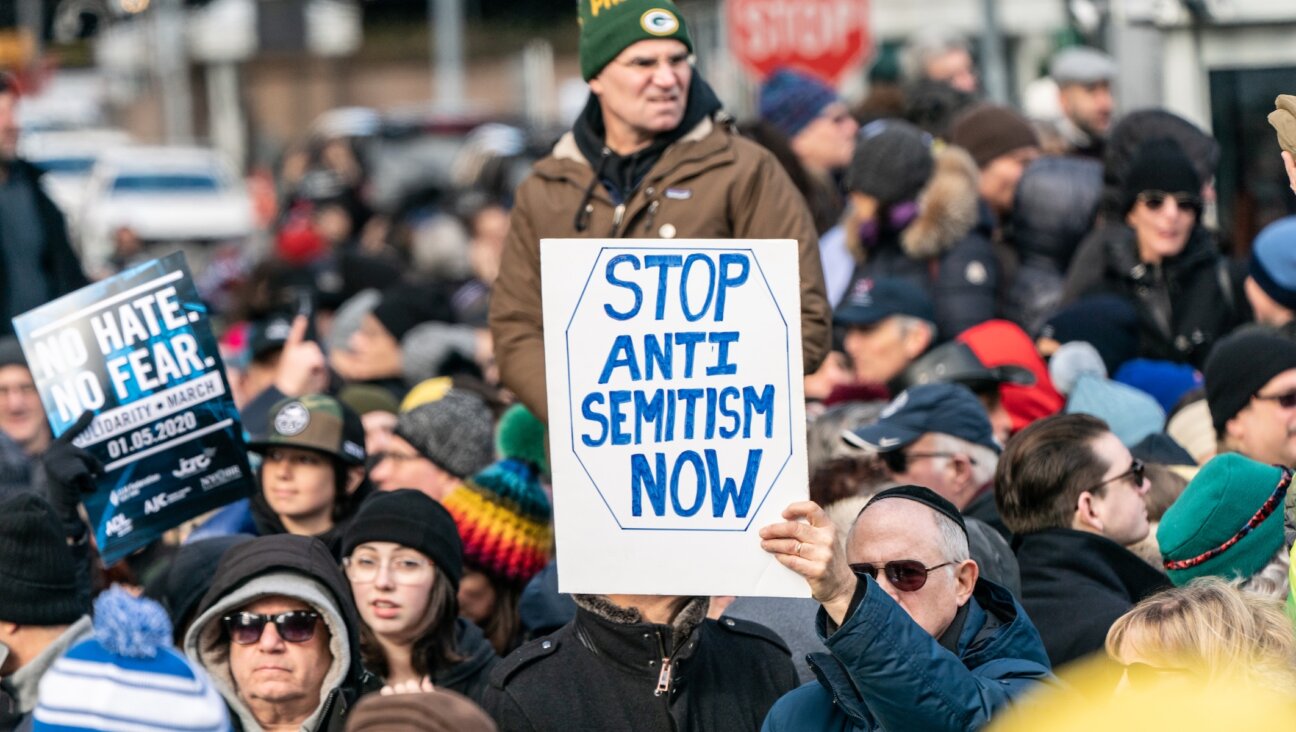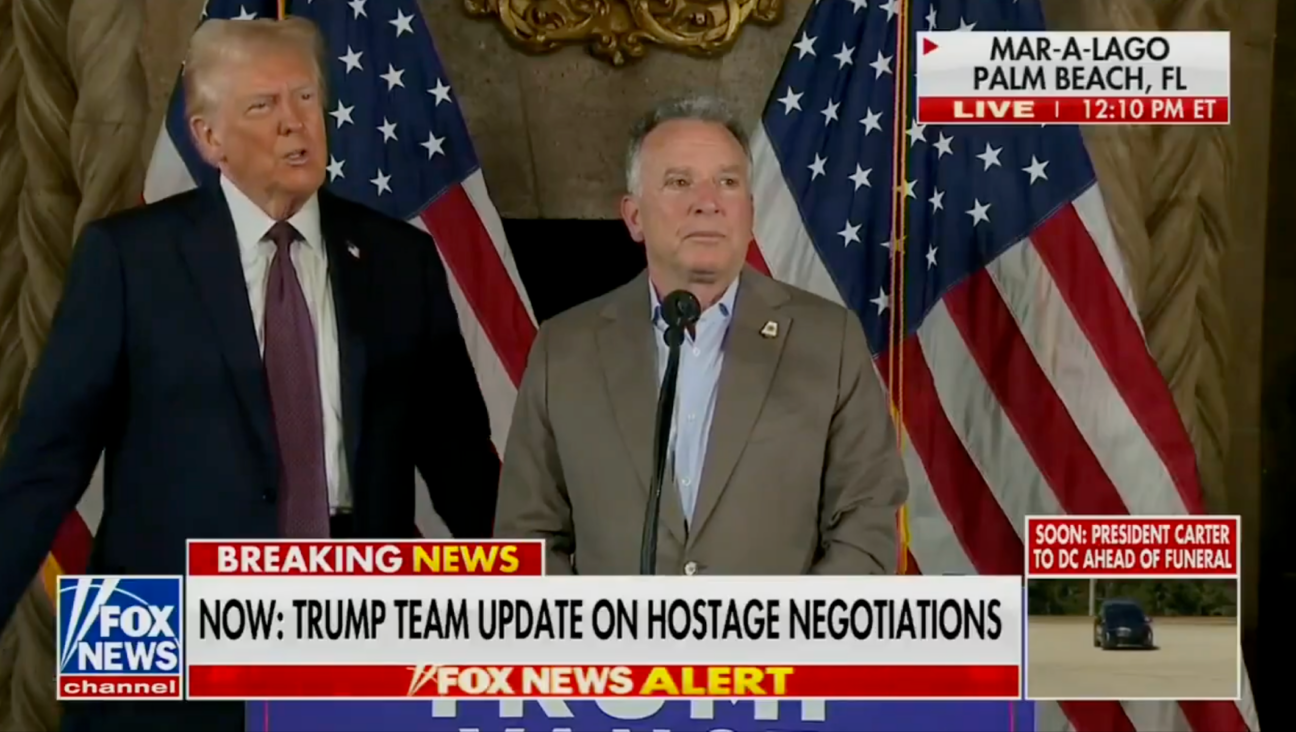Armenian Genocide Debate Exposes Rifts at ADL
It has been a long, hot, difficult summer for Abraham Foxman. Faced with the fight of his professional life, the indefatigable director of the Anti-Defamation League was forced into a rare and reluctant retreat by the unlikeliest of adversaries: an ethnic minority charging one of the world’s most famous Holocaust survivors with suppressing recognition of a genocide.
For weeks, Foxman, 67, faced mounting criticism for refusing to back Armenian Americans in their quest to pass a congressional resolution recognizing as genocide the World War I-era massacre of Armenians at the hands of their Ottoman rulers. But after insisting that the ADL and the United States should not risk inciting Turkey, Israel’s most important Middle Eastern ally, by labeling the episode as genocide, he made a hasty — if less than contrite — retreat this week in the face of a potential mutiny from fellow Jews.
“I didn’t make a mistake,” Foxman said Tuesday in an interview with the Forward. He added: “No Armenian lives are under threat today or in danger. Israel is under threat and in danger, and a relationship between Israel and Turkey is vital and critical, so yeah, I have to weigh [that].”
The ADL worked to head off a full-blown public relations crisis with a carefully worded statement, released August 21, that did not endorse the congressional resolution but confirmed that the “consequences” of the actions of the Ottoman Empire against the Armenians were “tantamount to genocide.” But several observers within the organization’s leadership told the Forward that even if the effort proves successful, the saga would likely leave behind lingering questions about Foxman’s maverick leadership style as well doubts about the group’s fundamental mission.
“Are we an organization of principle? Are we an organization that will stand up for what’s right and wrong? Or are our principles put through some kind of filter that involves Israel’s self-interest?”, said a member of ADL’s national executive committee who requested anonymity. There is “that subtext here.”
Some saw the brouhaha as a matter of chickens coming home to roost for Foxman, who has served as the ADL’s director since 1987. Over the years, Foxman has charged an array of foes with misrepresenting Jewish history and fomenting antisemitism, including Mel Gibson, Jimmy Carter, Louis Farrakhan and Mahmoud Ahmadinejad, the president of Iran. “There’s a huge irony here,” said Jonathan Sarna, a professor of Jewish history at Brandeis University. “The Armenian community is using all the strategies we invented to deal with Holocaust denial.”
Although a dispute over the Armenian genocide has simmered within some Jewish circles for years, ADL’s recent controversy commenced last April, when Foxman told the Los Angeles Times that he opposed a resolution, proposed by Congressman Adam Schiff and co-sponsored by 29 out 43 Jewish members of Congress, to officially recognize the Armenian massacres of 1915-1923 as a genocide.
“The Turks and Armenians need to revisit their past,” Foxman told the newspaper. “The Jewish community shouldn’t be the arbiter of that history. And I don’t think the U.S. Congress should be the arbiter, either.”
Although officially the ADL did not take a position on the bill, along with B’nai B’rith International, the American Jewish Committee and the Jewish Institute of National Security Affairs, all four groups have said publicly that historians, not lawmakers, should settle the debate over the 1.5 million Armenian deaths. Earlier this year, the groups passed along to congressional leaders a letter from Turkish Jews opposing the resolution.
But ultimately, Foxman and the ADL, which was founded to combat antisemitism in 1913, confronted the bulk of public opposition. The issue erupted last week when the town council of Watertown, Mass.— home to one of the country’s oldest and largest Armenian communities — voted to withdraw from an ADL-run anti-discrimination program. With other area towns poised to follow suit, ADL’s New England regional board, one of the organization’s most influential and moneyed, issued a statement backing the congressional resolution, and the board’s professional head, regional director Andrew Tarsy, publicly disavowed Foxman’s position.
Tarsy was summarily fired last Friday, resulting in the cascade of events — including the resignations of two regional board members, condemnation of the ADL by such prominent Jews as Harvard Law Professor Alan Dershowitz and a public rift with the Jewish Community Relations Council of Greater Boston, which organized a petition campaign among the area’s Jewish groups — that forced Foxman and the ADL’s national leadership to change course.
As of press time, the ADL had not announced whether Tarsy would be reinstated. In speaking to the Forward, Foxman — who is slated to release a book, “The Most Dangerous Lies: The Israel Lobby and the Myth of Jewish Control,” next month — remained almost defiantly unapologetic.
“We’ve never denied that there was a massacre, we [just] didn’t engage in the g-word,” Foxman said. “Now, they’ve insisted on the g-word. Fine.” He added: “If my going public and saying this was a genocide can bring unity to the community, and can make the Armenian community feel that they’re being heard, then I did it.”
The national director said he personally had believed that the Armenian tragedy constituted genocide before saying so publicly, but that his reversal was motivated by a concern for Jewish welfare. “I’m saying it sincerely. I still don’t think it’s our issue, but so many people believe it is our issue… I said okay,” Foxman said.
He added: “I saw what this was doing to the unity of the Jewish community at a time we need unity. Israel is under threat. European Jewry, Latin American Jewry are under attack. In America, we’re being attacked as disloyal. This is not a time for Jews to be attacking each other over an issue that is really not central.”
Armenian American leaders welcomed the ADL’s updated position but deemed it far from a full victory.
“This is a current-day issue,” said Anthony Barsamian, director of public affairs for the Armenian Assembly of America. “Speaking about genocide in Turkey will get you killed. Last fall, I traveled to Turkey and met with Hrant Dink, who was then the editor of the [Turkish-Armenian newspaper] Agos, and he was assuring me that this was an issue for Turks and Armenians within Turkey, and three months later, he was assassinated.”
Within the ADL, Foxman’s critics also seemed unlikely to be fully placated. Although Foxman is widely credited within the organization as a master tactician equally adept at handling world leaders and big-time donors, his detractors have long resented what they see as his propensity to unilaterally adopt positions, as when he lobbied for a pardon for financier Marc Rich in the final days of the Clinton administration. In 2001, Foxman angered leaders in Los Angeles when he unexpectedly fired the director of the ADL’s Pacific Southwest region.
“This is déjà vu,” said Joel Sprayregen, a longtime critic of Foxman who is a former national vice chair of the ADL and honorary chair of its Chicago region. “To many of us, it seems, here he does it again.”
A message from our Publisher & CEO Rachel Fishman Feddersen

I hope you appreciated this article. Before you go, I’d like to ask you to please support the Forward’s award-winning, nonprofit journalism so that we can be prepared for whatever news 2025 brings.
At a time when other newsrooms are closing or cutting back, the Forward has removed its paywall and invested additional resources to report on the ground from Israel and around the U.S. on the impact of the war, rising antisemitism and polarized discourse.
Readers like you make it all possible. Support our work by becoming a Forward Member and connect with our journalism and your community.
— Rachel Fishman Feddersen, Publisher and CEO





















